7 "Home Improvements" That Are Actually Ruining Your Property
You might want to reconsider before taking these projects on.
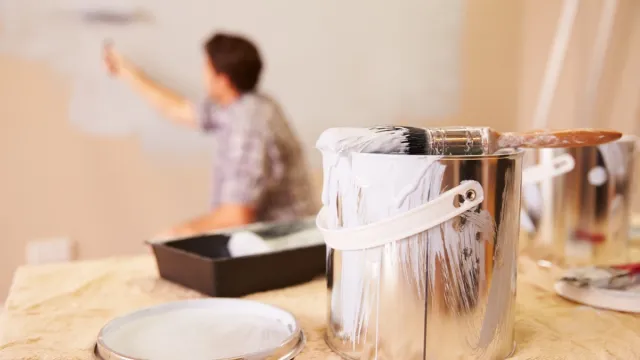
The idea of home improvement projects is either exciting or overwhelming—or, for many of us, it's a mix of both. But even if you are particularly jazzed about a project or renovation, there are a few things to consider before you start. First, if you're not in your "forever home," you don't want to do something that could hurt your property value. Second, you don't want to unintentionally damage your home—especially in a way that would make it less safe. Thankfully, home experts and real estate agents are here to warn you which "home improvements" may, in fact, be ruining your property.
RELATED: Property Brothers Warn Against 4 Popular Home Trends "You Need to Stop."
1
Installing outdoor water features

According to Bryson Taggart, licensed real estate agent and Opendoor Agent Manager, you need to beware of outdoor water features when trying to level up your home. Not only can these affect property value, but they can also damage surrounding areas.
"Water elements like ponds and fountains might be ideal elements for one owner—and potentially deter another," Taggart tells Best Life. "Given their upkeep and installation, these often pricey features might be a dealbreaker for certain buyers, and potentially cause future costly damage to the property's landscape."
He continues, "According to Opendoor's report on 2024 trends, fountains were among the least enticing outdoor features for 29 percent of homeowner respondents."
2
Creating an open floor plan
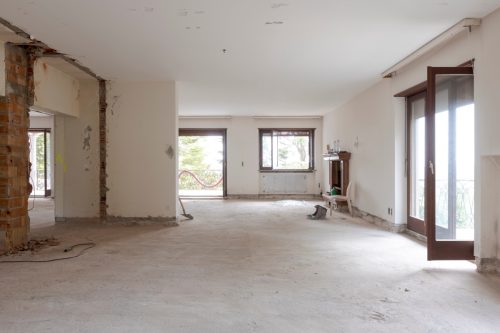
Load-bearing walls are key to your home structure, so you want to be mindful if you're trying to create a more open floor plan.
"Open floor plans are a popular design aesthetic in today's homes," Ashley J. Farrell, real estate agent at Corcoran, says. "If you're renovating an older space or looking to create a more open layout, check and double check about load bearing walls."
Getting rid of such a wall will require extra steps so as to avoid damage.
"If you're removing a crucial wall you need to reinforce the span, usually with steel beams," Farrell cautions. "Make a mistake here and your 'open floor plan' will be open to the outdoors when the roof caves in."
RELATED: 10 Mistakes You're Making That Keep Your House Cold, Experts Say.
3
Putting in outdoor structures

Similar to water features outside your home, outdoor structures are also something to be wary of, specifically gazebos and pergolas, Taggart says.
This is largely due to the "maintenance and weather considerations," as well as what future buyers will think about "inheriting these structures."
However, Taggart concedes, "If it works for one owner's design vision or brings about joy, it's worth considering as a home project."
4
Those done by an unreliable contractor

While some of us try to DIY projects, others feel more comfortable going with a professional so as to avoid anything going awry. Unfortunately, you still run the risk of ruining your home if you put your trust in the wrong professional.
"Not everyone is qualified to perform a renovation. At the very least contractors and other service providers should be licensed and insured—but licensed and insured isn't synonymous with quality," Farrell explains. "Ensure the people you're hiring know what they're doing."
When you're trying to decide who to go with, Farrell recommends asking for referrals.
"The best way to do this is through word of mouth. No one is quicker to tell you about a bad experience than a homeowner scorned," Farrell says. "You'll swiftly narrow down your list."
RELATED: Joanna Gaines Reveals the 5 Paint Colors She'd Never Use in Her Home.
5
Introducing too much color
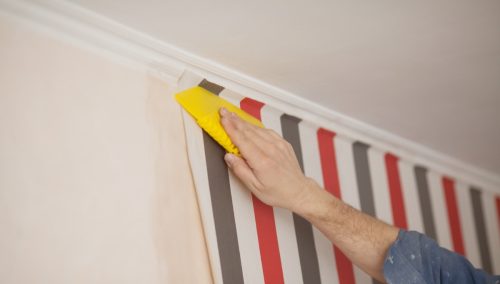
A fresh coat of paint is a great way to improve the value of your home, but experts advise against taking things too far. While it's probably not going to damage the structural integrity of your home, it can deter buyers.
"While some love bright hues on their walls, most buyers prefer more subtle tones," Taggart says.
According to the Opendoor study on trends, pink was the least-desired color for both exterior and exterior walls, followed by yellow.
"With nine in 10 consumers saying that exterior color impacts a potential house purchase, sellers may want to consider a fresh coat of a neutral color to help boost their home's sellability or a more subtle version of trendy colors: Think dusty rose, eggshell yellow, or pale blue," Taggart says.
You can also introduce different accent pieces to your home rather than taking on a larger project. This way, you can also take your pops of color with you if and when you move.
"Consider instead, painting an interior room or navy blue accent wall, choosing a vivid area rug, or adding color to a kitchen with art, stools, and countertop kitchen appliances in bright primary tones," Farrell suggests.
6
Adding elaborate design features
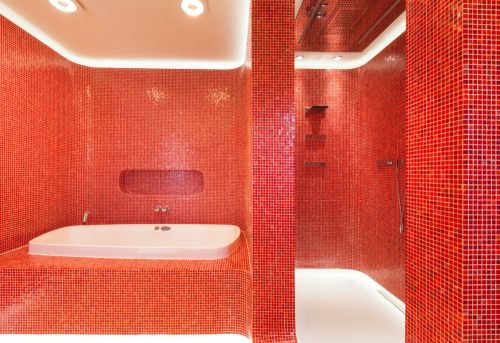
Similar to introducing too much color, you should also steer clear of too many intricate design features. Larger projects always run the risk of damage, but if you do decide to sell, it's something else to consider before taking the leap.
"I once showed a home where the first floor featured a multi-colored, confetti floor, sealed with a clear resin. While the owners loved the look, it didn't appeal to the masses," Farrell recalls. "Ultimately, the investment and time to change the look was cost prohibitive to buyers, making the home a difficult sale."
RELATED: Property Brothers Reveal 8 Ways to Boost Your Home's Value.
7
Removing certain features
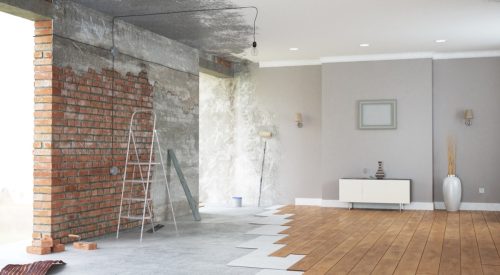
When you're renovating your home, removing certain features like closets or rooms can also make your property less attractive, according to Christine Miller Martin, licensed associate real estate broker at Compass.
"In Manhattan, generally any 'improvement' that reduces the audience for a property often devalues the home," she explains.





















